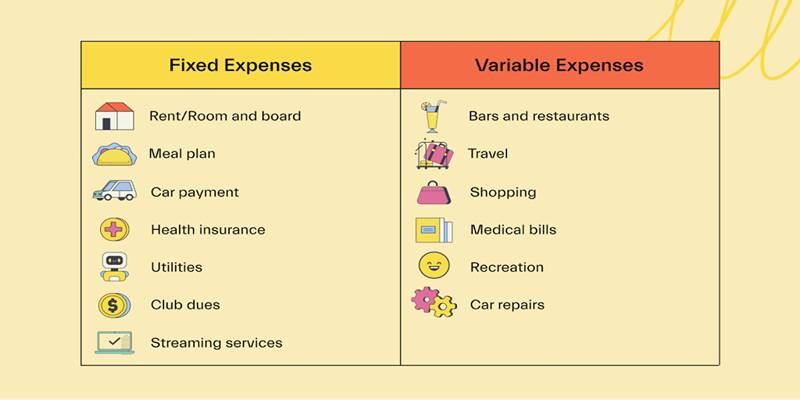Owning rental properties can be a great way to generate income, but managing them is another story. Many landlords debate whether hiring a property manager is worth the cost. Some see it as a necessary investment, while others believe they can handle things themselves and save money.
The choice isn't just about the fee—it's about whether that fee delivers value that exceeds the cost. Do property managers really make life easier, or are they a needless middlemen? This article dissects what property managers do, what they pay, and whether their services are worth the price.
What Does a Property Manager Do?
A property manager assumes complete responsibility for rental property management so that the landlord's investment is well looked after and lucrative. Their work involves a multitude of tasks, such as:
Tenant Screening – A good tenant makes rental ownership easy, while a bad one causes problems. Property managers screen tenants by checking credit, employment, references, and rental history to ascertain reliability and financial stability.
Rent Collection – Late payments can be a hassle for landlords. Property managers enforce leases, collect rent, and address late payment issues.
Maintenance and Repairs – Property managers schedule routine maintenance and emergency repairs to ensure small problems don't become expensive issues. They frequently deal with a list of preferred contractors, which saves landlords time and money.
Legal Compliance – All landlords are required to follow rental statutes, lease guidelines, and eviction procedures. A property manager is current on the law, ensuring landlords do not make expensive legal errors.
Marketing Vacancies – When a property becomes vacant, a property manager coordinates advertising, shows the property, and prescreens applicants to rent it quickly.
Handling Tenant Issues – From responding to complaints to mediating disputes, property managers ensure that tenant concerns are addressed professionally and efficiently.
Essentially, hiring a property manager means outsourcing the stress of being a landlord. Instead of handling everything personally, landlords can trust that their rental business is in good hands.
How Much Do Property Managers Charge?
The cost of hiring a property manager varies, but most charge a monthly fee between 8% and 12% of the rental income. Some also charge additional fees for services like lease renewals, eviction processing, or handling repairs.

For example, if a rental property earns $2,000 per month, a 10% management fee would amount to $200 per month or $2,400 per year. If other fees are included, the total cost could be even higher.
Some property management companies also charge leasing fees, which cover the cost of advertising the property, screening tenants, and preparing lease agreements. These fees can be a flat rate or a percentage of one month’s rent.
Although these costs may seem high, the real question is whether the services provided justify the expense. A good property manager can help landlords avoid costly mistakes, prevent vacancies, and maintain a steady cash flow. However, for landlords who manage their properties well on their own, these fees may feel like unnecessary spending.
When Is Hiring a Property Manager Worth It?
The decision to hire a property manager depends on several factors, including the number of rental units a landlord owns, their location, and how much time they are willing to dedicate to managing their property.
Hiring a property manager is worth it when:
You Own Multiple Properties—While managing one rental property can be manageable, managing several properties at once is time-consuming. Property managers help streamline operations and ensure everything runs smoothly.
You Live Far Away from Your Rental Property – If a landlord doesn’t live near their rental, handling tenant concerns, repairs, and inspections can be a challenge. A property manager acts as the landlord’s on-the-ground representative.
You Have a Full-Time Job or Other Responsibilities – Being a landlord can feel like a second job. If rental management disrupts work, family, or business, outsourcing to a professional manager ensures smooth operations and peace of mind.
You Struggle with Legal and Financial Aspects of Renting – Rental laws can be complex. A property manager ensures compliance with local regulations, helping landlords avoid fines and legal disputes.
On the other hand, landlords who only own one or two properties, live nearby and have the time and skills to manage them effectively may not need a property manager. If they are comfortable handling tenant screening, rent collection, and maintenance coordination, they can save money by managing the property themselves.
The Risks of Hiring a Bad Property Manager
Not all property managers are equal. While a good manager adds value, a bad one can create more problems than they solve. Some of the biggest complaints from landlords include:
Lack of Communication – Some property managers are slow to respond to landlord concerns or fail to provide updates on property performance.
High Maintenance Costs – Some managers charge high fees for repairs or work with contractors who overcharge for simple jobs.

Failing to Screen Tenants Properly – A bad tenant can cause major headaches, from unpaid rent to property damage. A careless manager who rushes the screening process can put the landlord at risk.
Hidden Fees – Some property management companies have complicated fee structures, charging for services landlords assumed were included in the standard contract.
To avoid these problems, landlords should carefully research property managers, read reviews, and ask for references before signing a contract.
Conclusion
Whether property managers are worth their fees depends on the landlord's needs. If handling tenants, maintenance, and legal issues are overwhelming, hiring a manager can ensure steady rental income and reduce stress. Their services are valuable for those with multiple properties or who live far away. However, landlords with the time and expertise to manage their rentals may find the fees unnecessary. In the end, it's about value—property managers can boost profitability, but self-management can save significant costs if done well.












